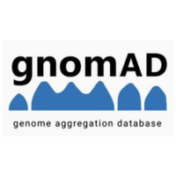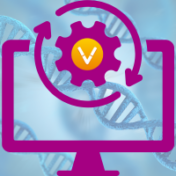In the rapidly evolving field of next-generation sequencing (NGS) and precision medicine, data sovereignty has emerged as a critical concern for bioinformatic operations. Healthcare organizations, molecular diagnostic laboratories, and government-funded genome centers worldwide increasingly recognize that maintaining complete control over high-dimensional genomic data isn’t merely about regulatory compliance—it’s fundamentally about scientific autonomy, institutional independence, and long-term data stewardship within a… Read more »
Streamline rare and undiagnosed disease analysis with VarSeq—NGS software designed to simplify variant interpretation and diagnosis insights.
VSWarehouse 3 (VSW3) is a powerful genomic data warehousing solution that gives laboratories full control over their cloud deployments while ensuring security and flexibility. One of its most exciting new features is the ability to run custom applications directly from the browser. This means that users can launch specialized tools to analyze and visualize genomic data without leaving their secure… Read more »
Genomic research is advancing at an unprecedented pace, and with it comes the need for powerful tools that can turn raw sequencing data into meaningful insights. VarSeq, our variant analysis and interpretation platform, has become a go-to solution for researchers tackling complex genetic questions. Whether in rare disease diagnostics, population genetics, cancer research, or infectious disease studies, VarSeq provides the… Read more »
Clinical variant analysis experts with fully integrated workflows are often hesitant to upgrade or migrate their workspace, and rightly so. Similarly, those looking for new next-generation sequencing analysis software, whether for secondary (alignment and variant-calling) or tertiary (variant annotation, filtration, interpretation, and reporting) analysis, can be easily daunted by the breadth and depth of the process of setting up a… Read more »
Advancements in genomic analysis tools have significantly enhanced the identification and characterization of genetic variants associated with complex diseases. VarSeq, our flagship powerful variant annotation and filtration software, plays a crucial role in streamlining whole-exome sequencing (WES) data analysis, enabling researchers to detect pathogenic mutations efficiently. By utilizing VarSeq’s comprehensive annotation capabilities, researchers were able to filter and prioritize variants,… Read more »
At Golden Helix, we’re proud to see how VarSeq is transforming the landscape of genetic research and clinical diagnostics. From variant annotation and filtering to in-depth visualization, VarSeq’s powerful suite of tools helps researchers uncover critical genetic insights with confidence and efficiency. In this blog post, we’re excited to showcase recent publications where VarSeq played a pivotal role in identifying… Read more »
We are excited to announce the addition of CADD 1.7 as an annotation track in VarSeq. The latest release of CADD incorporates a variety of new annotations into its model, resulting in significant improvements in variant scoring. This includes the integration of Meta ESM scores and improved performance on non-coding variants. Meta AI Evolutionary Scale Model One of the most… Read more »
Next-generation sequencing (NGS) has transformed our ability to detect the genetic causes of diseases. VarSeq is a key tool in this process because it helps users sift through large numbers of genetic variants to find those most likely to cause or contribute to disease. The below publications have demonstrated VarSeq’s usefulness in discovering new gene variants related to neurodevelopmental disorders,… Read more »
Following up on our recent post about VSWarehouse 3’s Bring Your Own Cloud capabilities, we wanted to dive deeper into one of its most powerful features: our comprehensive workflow system. This system is designed to streamline genomic analysis pipelines while providing flexible integration with various cloud genomics providers. Understanding VSWarehouse 3 Workflows At its core, VSWarehouse 3’s workflow system is… Read more »
Publicly available datasets play a crucial role in research and offer resources for validation and benchmarking of workflows. In this blog, I would like to point out and briefly discuss several notable, publicly available sources of NGS sequencing data. Each of these sources provides validated datasets that are invaluable for laboratories and institutions processing NGS samples. EPI2ME is an advanced… Read more »
Guess what, Golden Helix users and interested parties? We will be front and center at the ASHG 2024 Annual Meeting in Denver, Colorado, from November 6-8—and we’ve got a ton to share with you. If you’re attending, make sure you swing by booth #959 because we’re bringing some great new information on our latest updates that are going to take… Read more »
We’re excited to announce the release of gnomAD 4.1 variant frequencies as an annotation track in VarSeq. This latest release addresses key issues from previous versions and introduces joint variant frequencies curated directly from gnomAD. Additionally, we’ve refined our liftover process, offering more accurate GRCh37 tracks. By incorporating this data into the VarSeq data source library, we provide users with… Read more »
Reporting on Cancer Biomarkers may seem like a daunting task, both in determining the scope of what a biomarker can encompass and which information to include. Biomarkers can come in the form of small variants (SNPs and INDELs), copy number variants, and structural variants. Biomarkers can also be sourced from external cancer kits in the form of a Genomic Signature,… Read more »
I am pleased to announce that VarSeq 2.6.2 is now available! VarSeq 2.6.2 comes jammed-packed with new features and capabilities to advance your NGS analysis workflows. In this blog, I will describe the major changes to the VSPGx workflow, which were the main focus of the release, and I will also talk about other exciting features and new algorithms that… Read more »
Exome and genome sequencing have advanced genetic research, but data analysis remains complex. VarSeq simplifies this by helping researchers identify key genetic changes in rare diseases and cancer, improving screening and diagnosis. Here are recent customer publications that highlight VarSeq usage. Expanded carrier screening for inherited genetic disease using exome and genome sequencing The goal of this study was to… Read more »
Our webcast on Integrating Long and Short Read Sequencing for Comprehensive NGS Analysis was a timely review of a topic. We discussed how users are leveraging both short and long-read sequencing modalities for comprehensive NGS analyses, reviewing the differences between long and short-read sequencing, the benefits and limitations of each modality, and how they complement each other. The theme was how… Read more »
Periodically, our FAS team will see a situation where a customer has installed VarSeq on a new machine…but something is not entirely right. Perhaps a VCF will not load, annotations cannot download, or a long-running process like coverage regions will not complete. Any of these issues alone can be tricky to troubleshoot, whether due to a permissions block, a lack… Read more »
Cloud computation is a hot topic across industries that require scalable software solutions to enable growth, and for good reason. The cloud, in all its mystical appeal, has so mellifluously penetrated the zeitgeist that experts engaging with new software solutions are often eager to hear how they fit into the cloud computing ecosystem. In the world of next-generation sequencing (NGS),… Read more »
At Golden Helix, we are proud to support researchers and clinicians worldwide who push the boundaries of precision medicine. Our VarSeq software continues to be instrumental in the analysis and interpretation of genetic data, enabling groundbreaking discoveries and advancements. Recently, several papers have been published that showcase the power and versatility of VarSeq in various research domains, from neurodegenerative diseases… Read more »















